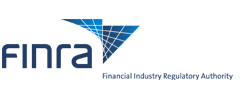
FINRA Joins Exchanges in Fining Newedge USA, LLC $9.5 Million for Supervisory, Regulation SHO, and Books and Records Violations
WASHINGTON — The Financial Industry Regulatory Authority (FINRA), along with BATS Exchange, Inc.1, New York Stock Exchange LLC2, NYSE Arca, Inc. and The NASDAQ Stock Market LLC, announced today that they have censured and fined Newedge USA, LLC of Chicago $9.5 million for failing to supervise trading by clients that directly accessed U.S. equities markets through Newedge's order routing platform and/or internet service providers (known as "direct market access," or "DMA") or routed orders directly to market centers (known as "sponsored access," or "SA"). In addition, Newedge also violated Regulation SHO (Reg SHO) and SEC Emergency Orders concerning short sales, and failed to obtain and retain books and records.
Thomas Gira, Executive Vice President of Market Regulation at FINRA, said, "If a firm is going to turn a blind eye toward potentially manipulative trading unleashed upon the market by one of its customers, this case shows that there will be serious consequences. It is imperative that firms giving customers access to the marketplace function as responsible gatekeepers and implement reasonable supervisory programs and procedures to monitor their customers' trading to ensure market integrity. As there were many triggers for this case, including referrals and information from BATS, NASDAQ and the NYSE, this case also illustrates how FINRA and the exchanges can effectively pursue activity that spans multiple markets."
FINRA and the exchanges found that Newedge did not have sufficient procedures, adequate surveillance tools, or necessary information to monitor DMA and SA client trading. Newedge's supervisory violations occurred over a four-year period, during which numerous internal documents noted the firm's deficiencies. Even after these "red flags" were raised, Newedge did not take adequate steps to satisfy its supervisory obligations.
In one example, FINRA also found that Newedge did not have adequate procedures or controls to monitor which clients used DMA and SA to trade in the equities markets. Newedge failed to reasonably and effectively monitor for certain types of potentially manipulative trading, such as wash trading, despite numerous requests from its own compliance department to implement a wash trading surveillance report. Also, Newedge could not adequately monitor certain clients' trading because it did not receive any order data reflecting their activity. Newedge also lacked essential knowledge about the beneficial owners of certain accounts directly accessing U.S. markets through firm affiliates, knowledge that was necessary for Newedge to properly monitor for potentially manipulative or suspicious activity. In addition to failing to obtain or retain required records, such as certain order data and client documentation, Newedge failed to retain certain email and text message data.
Newedge's failure to supervise its DMA and SA business also impacted its ability to supervise compliance with federal securities regulations regarding short sales, including the Emergency Orders issued by the SEC in July and September 2008 restricting or prohibiting short sales in certain securities. During the financial crisis in 2008, Newedge permitted its clients to submit numerous orders for short sales in securities that were prohibited by the SEC. FINRA found that Newedge violated Reg SHO by accepting customer's short sale orders without a reasonable basis to believe the securities could be borrowed, could not determine its net position for appropriate sell order marking in a given security, and could not reasonably determine whether sell orders entered by clients were accurately marked.
In concluding this settlement, Newedge neither admitted nor denied the charges, but consented to the entry of FINRA's findings. Newedge also consented to retain an Independent Consultant to conduct a comprehensive review of the adequacy of the firm's policies, systems and procedures relating to the specific areas of violative conduct identified by FINRA and the exchanges. Newedge will pay a total of $9.5 million in fines, including a $4 million fine to FINRA, a $1.75 million fine to The NASDAQ Stock Market LLC, a $1.75 million fine being paid to the BATS Exchange, Inc., a fine of $1.125 million to the New York Stock Exchange LLC, and an $875,000 fine to NYSE Arca, Inc.
FINRA's investigation was conducted by the Departments of Enforcement and Market Regulation.
Investors can obtain more information about, and the disciplinary record of, any FINRA-registered broker or brokerage firm by using FINRA's BrokerCheck. FINRA makes BrokerCheck available at no charge. In 2012, members of the public used this service to conduct 14.6 million reviews of broker or firm records. Investors can access BrokerCheck at www.finra.org/brokercheck or by calling (800) 289-9999. Investors may find copies of this disciplinary action as well as other disciplinary documents in FINRA's Disciplinary Actions Online database.
FINRA, the Financial Industry Regulatory Authority, is the largest independent regulator for all securities firms doing business in the United States. FINRA is dedicated to investor protection and market integrity through effective and efficient regulation and complementary compliance and technology-based services. FINRA touches virtually every aspect of the securities business – from registering and educating all industry participants to examining securities firms, writing rules, enforcing those rules and the federal securities laws, informing and educating the investing public, providing trade reporting and other industry utilities, and administering the largest dispute resolution forum for investors and firms. For more information, please visit www.finra.org.
1 The settlement with the BATS will become final and conclusive on July 31, 2013, unless called for review pursuant to BATS Rule 8.10(c).
2 The settlement with the NYSE will become final and conclusive on July 22, 2013, unless called for review pursuant to NYSE Disciplinary Rule 476(g).
